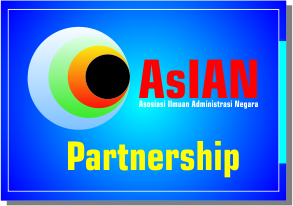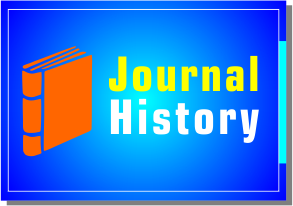Pengaruh Kepemimpinan Kepala Sekolah dan Kompetensi Pedagogik Guru terhadap Hasil Belajar Siswa SMK PGRI 11 Ciledug pada Kota Tangerang Banten
DOI:
https://doi.org/10.31334/trans.v1i2.310Keywords:
Principal Leadershi, Teacher Pedagogic Competence, Student learning outcomesAbstract
For the Effect of Principal Leadership and Teacher Pedagogical Competence on the learning outcomes of SMK PGRI 11 Ciledug students in Tangerang City, Banten, the method used was quantitative and questionnaire distribution using saturated samples. By using a statistical formula in which Variable X1 is the number of scores from respondents' questions about Principal Leadership and Variable X2 is the number of scores from respondents' questions about teacher pedagogical competencies and Y variable is the number of scores from respondents' questions about student learning outcomes.
From the results of the comparison of t count (-8,202) and t table (1,995) then t count> t table means a negative significant effect between the principal's leadership on student learning outcomes. From the results of the comparison of t arithmetic 16.972 and t table 1.995, t count> from t table means a positive significant effect between teacher pedagogical competencies and student learning outcomes. From the results of the comparison of F count 2.116 F, table 0.309 then F count> F there is a significant influence between the leadership of the principal and the competent teachers of teachers on student learning outcomes..References
Arsyad, Azhar, 2010. Media Pembelajaran, Jakarta : PT Raja GrapindoPersada.
Adair, John; 2004. Menjadi Pemimpin Efektif, Jakarta: Pustaka Bina Presindo, Budiyono, StatistikaUntukPenelitian. Surabaya: SebelasMaret University Press.
Dahlan, Sitti Salmiah, 2011. ManajemenPendidikan Islam, Jakarta:Rabbani Press.
Danim, Sudarwan, 2005. Menjadi Komunitas Pembelajar: Kepemimpinan Transformasional dalam komunitas Organisasi Pembelajaran, Bumi Akasara: Jakarta.
Daryanto,AdministrasiPendidikan, RinekaCipta: Jakarta,2008.
Departemen Pendidikan dan Kebudayaan, 1994. Petunjuk Mutu Pendidikan di Sekolah Dasar, Jakarta: Direktorat Jendral Pendidikan Dasar dan Menengah.
Depdiknas, 2001. ManajemenPeningkatanMutuberbasisSekolah (buku I), Jakarta, Depdiknas.
Division.Bachtiar, Yoyon, 1997. Manajemen Mutu Terpadu, Bandung: laboratorium Pengembangan Manajemen Mutu Pendidikan Jurusan Adpen FIP IKIP Bandung.
Drost, 1998. Sekolah: MengajaratauMendidik?.Yogyakarta: Kanisius.
Fauzan, Ali Nurdin, Abd.Rozak, 2010. Kompilasi Undang-Undang dan peraturan Bidang pendidikan. Jakarta : FITK Press.
Hanafi, Mamduh,1997. Manajemen, Yogyakarta:YKPN.
Hamalik, Oemar, 2013 Dasar-Dasar Pengembangan Kurikulum, Bandung PT Remaja Rosdakarya.
Heck,Ronald, 1998 Copseptual and Methodological Issues in Investigating principal Leadership Across cultures, Peabody Journal of Educational V 73 N0.2.
Imam Ghozali, 2005. Analisis Multivariate dengan Program SPSS. Semarang : Badan Penerbit Universitas Diponegoro.
Imron, 1999. Pembinaan Guru di Indonesia, Jakarta: PT.DuniaPustaka Jaya.
Informasi Manajemen Pendidikan, Jakarta:Bumi Aksara, 2010.
Liputo, Benyamin, 1998. Pengantar Manajemen, Jakarta :Proyek Pengembangan lembaga pendidikan, Dirjen Dikti, Depdikbud.
Maister, 1997. True Profesionalisme. New York: The Free Press.
Majid, Abdul, 2010. PerencanaanPembelajaran (Mengembangkan Standar Kompetensi Guru), Bandung : PT. RosdaKarya.
Mangkuprawira, Syafrie,2003 .Manajemen SDM. Jakarta:PTGhalia Indonesia.
Media Pendidikan, 2010. Jakarta : Rajawali Press.
Muhaimin, Suti’ah, Sugeng Listyo Prabowo, 2011. Manajemen Pendidikan (Aplikasinya Dalam Penyusunan Pengembangan Sekolah/Madrasah). Jakarta : Kencana Prenada Grup.
Mulyasa,H.E. 2012. Manajemendan Kepemimpinan Kepala Sekolah, Jakarta :BumiAksara.
Mulyasa, H.E, 2003. Menjadi Kepala Sekolah Profesional, Bandung : PT. RemajaRosdakarya.
Muslich, Masnur, 2009. Sertifikasi Guru Menuju Profesionalisme Pendidik, Jakarta : BumiAksara.
Nataly S Glasman, 1996. Evaluated based leadership, : School Adminstration in ContemporyPerspektif, New York :state University Press.
Nazir, Moh, 2013. Metode penelitian. Bogor :Ghalia Indonesia.
Pidarta, Made, 2004. ManajemenPendidikan Indonesia, Jakarta: PT. Rineka Cipta, Jakarta.
Pidarta, 1998. landasan Kependidikan Stimulus Ilmu Pendidikan Bercorak Indonesia. Jakarta: PT.Bina Rineka Cipta.
Purwanto, Ngalim, 1995. Administrasidan Supervisi, Bandung : Remaja Rosdakarya.
Rasyad, Aminuddin, 2003. Teori Belajar dan Pembelajaran, Jakarta:PPS UHAMKA.
Rahardjo, M.Dawam, 1997. KeluardariKemelutPendidikanNasional, Jakarta: Intermasa.
Rohiat, 2009. Manajemen Sekolah, Bandung : PT. Refika Aditama.
S, Nasution , 2002 Didaktik Dasar-Dasar mengajar, Bandung: Jenmers, 2002.
Sagala, Syaiful 2003., Manajemen Berbasis Sekolahdan Masyarakat, Bandung Alfa Beta.
S.B. Djamarah, 1994. PrestasiBelajar dan Kompetensi Guru. Surabaya. Usaha Nasional.
Saudagar, Fachrudin & Ali Idrus, 2011. PengembanganProfesionalitas Guru, Jakarta : PT GP Press. 2011.
Syarief, MohSuryadi, 2013. Akuntabilitas Kepala Sekolah, Jakarta :Uhamka Press.
Sekaran, Uma, 2011. Metode Penelitian Untuk Bisnis. Jakarta: CV. Salemba Empat.
Supriadi, 1998. Mengangkat Citra dan Martabat Guru, Yogyakarta: Adi Cita Karya Nusa.
Sugiyono, 2003. MetodePenelitianAdministrasi. Bandung: CV.Alfabeta..
Suryabrata, Suamdi, 2001. Proses Belajar Mengajar di PerguruanTinggi, Jogjakarta: Andi Offset.
Suryana, Asep, Suryadi, PengelolaanPendidikan, Jakarta :Departemen Agama RI, 2009.
Wahjodumidjo,1999. Kepemimpinan Kepala Sekolah,Jakarta: PT. Radja Grapindo persada, 1999.
Wirawan, KapitaSelektaTeoriKepemimpinan: PengantaruntukPraktek danPenelitian, Jilid I, Jakarta : Uhamka Press, 2010.
Zuchdi, Darmiyati,2019. HumanisasiPendidikan, Jakarta: Bumi Aksara.
Downloads
Published
Issue
Section
License

This work is licensed under a Creative Commons Attribution-ShareAlike 4.0 International License
Please find the rights and licenses in Transparansi : Jurnal Ilmiah Ilmu Administrasi By submitting the article/manuscript of the article, the author(s) agree with this policy. No specific document sign-off is required.
- License
The commercial use of the article will be governed by the Creative Commons Attribution license as currently displayed on Creative Commons Attribution-ShareAlike 4.0 International License.
2. Author(s)' Warranties
The author warrants that the article is original, written by stated author(s), has not been published before, contains no unlawful statements, does not infringe the rights of others, is subject to copyright that is vested exclusively in the author and free of any third party rights, and that any necessary written permissions to quote from other sources have been obtained by the author(s).
3. User Rights
Transparansi : Jurnal Ilmiah Ilmu Administrasi spirit is to disseminate articles published are as free as possible. Under the Creative Commons license, Transparansi : Jurnal Ilmiah Ilmu Administrasi permits users to copy, distribute, display, and perform the work for non-commercial purposes only. Users will also need to attribute authors and Transparansi : Jurnal Ilmiah Ilmu Administrasi on distributing works in the journal and other media of publications.
4. Co-Authorship
If the article was jointly prepared by more than one author, any authors submitting the manuscript warrants that he/she has been authorized by all co-authors to be agreed on this copyright and license notice (agreement) on their behalf, and agrees to inform his/her co-authors of the terms of this policy. Transparansi : Jurnal Ilmiah Ilmu Administrasi will not be held liable for anything that may arise due to the author(s) internal dispute. Transparansi : Jurnal Ilmiah Ilmu Administrasi will only communicate with the corresponding author.
5. Miscellaneous
Transparansi : Jurnal Ilmiah Ilmu Administrasi will publish the article (or have it published) in the journal if the article’s editorial process is successfully completed. Transparansi : Jurnal Ilmiah Ilmu Administrasi editors may modify the article to a style of punctuation, spelling, capitalization, referencing and usage that deems appropriate. The author acknowledges that the article may be published so that it will be publicly accessible and such access will be free of charge for the readers as mentioned in point 3.
Every accepted manuscript should be accompanied by "Copyright Transfer Agreement"prior to the article publication.











